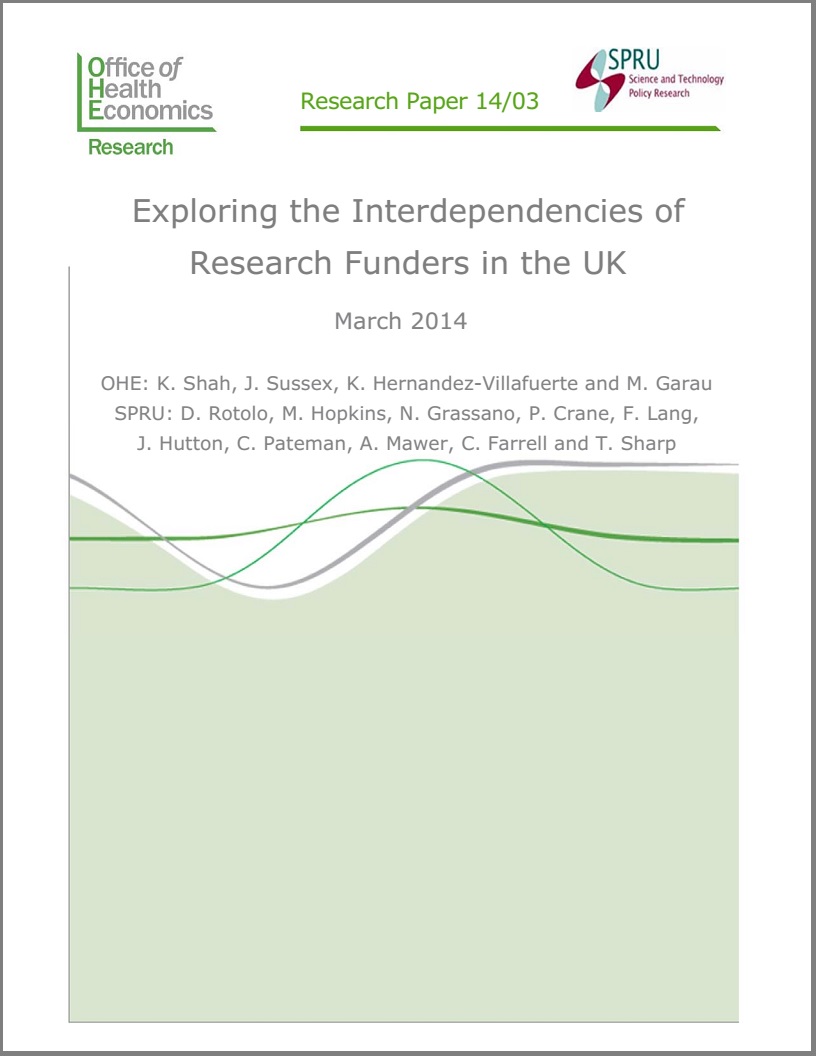Sign up to our newsletter Subscribe
Analysing Global Immunisation Expenditure

As earlier OHE research has demonstrated, sources of funding for medical research—public, charity and private sector—are complementary, not duplicative. The three sectors also differ in their approaches. As a result, decreased funding from one would not only reduce the overall financing available, but…
As earlier OHE research has demonstrated, sources of funding for medical research—public, charity and private sector—are complementary, not duplicative. The three sectors also differ in their approaches. As a result, decreased funding from one would not only reduce the overall financing available, but also change the nature of the research effort overall. This is a concern given that austerity in government spending in the UK is likely to continue for some time. This report produced by OHE and SPRU at the University of Sussex for Cancer Research UK explores two sets of questions: 1. What are the differences in the research activities supported by various funders in the UK? How complementary and interdependent are they? 2. If government funding of life sciences research was cut, what would the effect be on life sciences research in the UK? Could other funders compensate for the loss of funds? The study finds that two-thirds of projects reviewed had received funds from more than one source and just under half had funding from outside the UK. The majority also were highly collaborative in nature, involving teams working across organisations and countries. The importance of government funding was highlighted by a survey of the general public. The results showed that the public would not want funding for cancer research reduced, but that donations would not be increased enough to compensate if reductions did occur. The report concludes that: Exploring the interdependencies between different medical research funders, particularly in cancer, provides us with a striking picture of the extent to which research funders contribute together to produce world class research. The findings provide a compelling case for why investment—by all sectors—is needed to allow the UK to maximize its research outputs.
A revised version of this paper has been published in Health Research Policy and Systems and can be downloaded from: http://link.springer.com/article/10.1186%2Fs12961-015-0027-6
Please cite as: Shah, K., Sussex, J. and Hernandez-Villafuerte, K., 2015. Government and charity funding of cancer research: public preferences and choices. Health Research Policy and Systems, 13(38).
Exploring the Interdependencies of Research Funders in the UK

